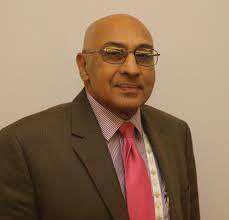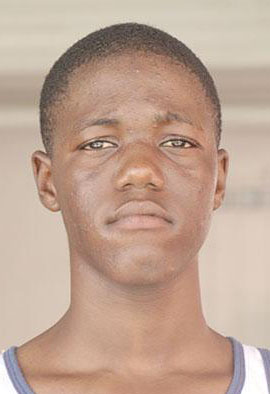An ever consistent argument of a lack of facilities once again takes the spotlight as Guyana sends its largest ever team to the Central America and Caribbean Games in Colombia.
From the smallest contingent, cycling, represented by Romello Crawford with Joseph Briton as his coach and manager, to one of the largest contingents in hockey, the lack of facilities has already placed Guyana’s representatives at a disadvantage.
For hockey, the absence of an artificial service is the main detriment to the sport but coach of the national hockey team, Robert France, made it clear that having these facilities will not fix all the problems but will however make competing easier.

Similarly, a velodrome is what has been missing from the local cycling arena since the creation of the sport on the local circuit, but surprisingly enough, young Crawford will participate on a velodrome in Columbia with very little experience and not in the road race to which he is accustomed to.
For many sports in Guyana, finance is always a major worry. In hockey, without the artificial surface the team is forced to travel overseas to play and gain experience, whatever little they can and as much as they can afford. In the eyes of Fernandes, it is roughly one or two tournaments per year.
Likewise, Crawford was training in Trinidad for a while and the United States trying to get accustomed to the velodrome.
The men’s hockey team enjoyed a stint in Trinidad while the females participated in Barbados ahead of the CAC games which is the amount of their exposure.
In an interview with Stabroek Sport, Fernandes said he does not want the authorities to think a surface will solve all the problems but it would help a lot.
The difference is strikingly visible but Fernandes explained that playing on grass, as we do in Guyana, is vastly different.
“On the grass the ball can pop up at any point so you focus on stopping the ball then looking for the play while on the surface the game is like you press fast forward, it is almost always flat so you don’t really stop the ball your head is up and you scan for the play.”
According to the veteran, “the closest we come to an artificial surface is the National Stadium which is only available on Sundays sometimes but with cricket coming there hasn’t been that availability lately but we are mixing up the training at the Gymnasium which is also small.”
The situation is no different for the cyclist whose closest form of circuit racing is the National Park.
Nevertheless, like all Guyanese, the fighting spirit runs through these athletes and they are hyped ahead of their encounters.
In hockey, the withdrawal of Columbia has forced Guatemala into their group, alongside Mexico and the Dominica Republic.
“I’ve searched for footage of their matches and couldn’t find any so we are going in

blind and they haven’t seen us either so they don’t know what to expect either,” Fernandes said.
Despite that, Fernandes said he was focused on lifting the teams’ fitness level and boosting their strength, some aspects of their game that they noted were not far off the top seed after their encounter in the friendly matches against Trinidad.
Experience is another factor that comes into the equation with players collecting in excess of 300 caps compared to Guyana’s most experienced player who has just over 20 caps.
“Because of this we are still pretty much learning,” Fernandes said.
Because of the lack of facilities, the two disciplines are severely pressed to find other avenues to get the exposure.
If the appropriate facilities were available, Fernandes reasoned that Guyana could host matches on the surface, invite teams to come, have tournaments of international recognition, not only lifting the standard but gaining exposure and international experience so the team can perform better at these tournaments.
National Cycling coach, Hassan Mohammed has on numerous occasions listed the benefits of having a velodrome, whereby we can develop teams rather than muster up funding to send people abroad to train.
Guyana Olympic Association President, K.A. Juman Yassin has already called out Minister of Social Cohesion with Responsibility for Sports, Dr. George Norton on the issue of the artificial turf.
Yassin said that Norton had promised that there will be talks on the turf but to date nothing has happened.
In cycling, there has already been plans to locate a portion of land for the development of a velodrome but that too seems to be lost in time.
By virtue of this, it will not surprise many if the two disciplines are faced with insurmountable hurdles as they progress in the tournament.
Fernandes explained that getting accustomed takes time and by the time you get accustomed you would have lost crucial games.






